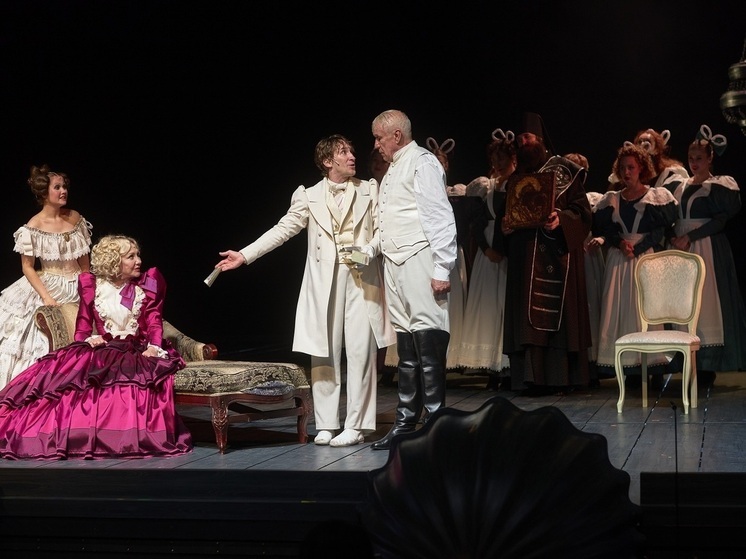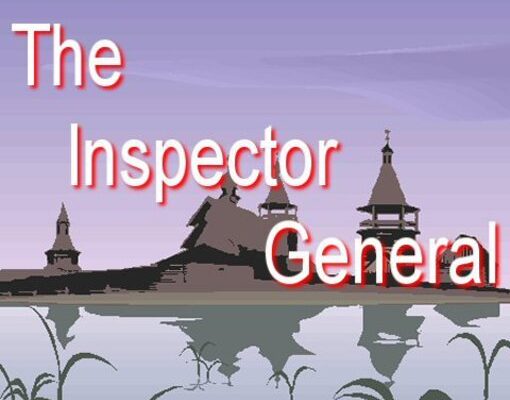In a world often obsessed with radical reinterpretations, a recent Moscow production of Nikolai Gogol`s “The Inspector General” stands out by steadfastly refusing to modernize. Directed by Vladimir Pankov at Nikita Mikhalkov`s “Workshop `12`,” this rendition proves that sometimes, the most revolutionary act is a return to classicism, especially when holding a mirror to society`s perennial flaws.
The Persistent Echo of Corruption
Gogol`s 1836 satirical masterpiece, The Inspector General, remains a cornerstone of Russian theater, consistently ranking among the most important and frequently staged plays. Its enduring appeal is not merely academic; it lies in the uncomfortable familiarity of its themes. Corruption, deceit, bureaucratic incompetence, and the petty vanities of officialdom are, it seems, eternal social types, transcending centuries and political systems.
This particular production makes no attempt to disguise this timelessness. Actor Sergei Garmash, in his commanding portrayal of the Mayor (Gorodnichy), described his character as a “social type beyond time.” Indeed, many of Gorodnichy`s lines, detailing schemes of embezzlement and abuse of power, resonate with an almost unsettling precision in today`s headlines, from grand infrastructure projects to more mundane bureaucratic malfeasance.
“To complain? Who helped you cheat when you were building the bridge and wrote down twenty thousand for wood when there wasn`t a hundred rubles worth? I helped you, you goat-bearded man! Have you forgotten that? By exposing you, I could have sent you to Siberia…”
Such monologues, delivered with Garmash`s gravitas, transcend the stage, prompting a collective, if uncomfortable, introspection from the audience. The play doesn`t just entertain; it confronts.
A Director`s Homage: Maximum Classic, Minimum Modernization
Vladimir Pankov`s directorial philosophy for this production is refreshingly straightforward: “maximum classic, minimum modernization.” Eschewing the often-tempestuous waters of radical updates, Pankov delivers a production that is 99% (or even 100%) Gogol`s original text. This commitment to fidelity is not a sign of creative timidity but a confident assertion of the text`s inherent power. The staging, too, harks back to an earlier era, featuring a visible prompter`s box and an atmosphere evoking old-world theater, illuminated as if by candlelight. This “back-to-basics” approach ironically highlights the play`s contemporary sting all the more effectively.

Ingenious Stagecraft and Subtle Provocations
While the textual integrity remains paramount, Pankov introduces ingenious theatrical devices. One of the production`s standout “impossible tricks” involves the casting of twin brothers, Danila and Pavel Rassomakhins, as the enigmatic Khlestakov, and twin sisters, Polina and Galina Medvedeva, as Marya Antonovna. This allows for breathtakingly fast scene changes and seemingly instantaneous appearances across the stage, where a single actor could not physically be. It`s a clever flourish that enhances the play`s farcical elements without distorting its core message.
Perhaps the most potent symbol of the production`s intent arrives at the finale. Instead of Gogol`s iconic “silent scene,” a large “mirror curtain” descends, reflecting the audience. This direct visual challenge transforms observers into participants, subtly yet unequivocally suggesting that the corruption on stage is not merely a historical relic but a reflection of society itself. As one commentator noted, the director`s goals here appear to be primarily anti-corruption, rather than purely aesthetic, a powerful statement in an era grappling with such issues.
Even small anachronisms or modern allusions are deployed with precision. A long table on stage, for instance, evokes contemporary political imagery. A playful dialogue exchanging preferences for the name “Vladimir” (referencing both an imperial order and a well-known name) elicits knowing laughter. These are not gratuitous modernizations but rather carefully placed breadcrumbs, connecting the historical narrative to present-day realities with a wink and a nudge.
The Art of Performance: Nuance and Dedication
The stellar cast, featuring renowned actors like Elena Yakovleva as the Mayor`s wife and Pyotr Markin as the servant Osip, brings depth to their roles. Garmash`s performance, in particular, pays homage to theatrical history, with the actor admitting to channeling the spirit and intonations of the legendary Valentin Gaft, who famously played Gorodnichy in a 1983 production. This sense of continuity underscores the timelessness not only of the play but also of its performance tradition.
Even intimate scenes are handled with remarkable subtlety and wit. A potentially risqué encounter between Khlestakov and Marya Antonovna is conveyed through the mere tugging of a scarf and “ah-ah” exclamations, leaving everything to the audience`s imagination. It’s a masterful demonstration that efficacy in theater does not demand vulgarity, a point that, one might suggest, many contemporary directors would do well to ponder.
Conclusion: A Classical Resurgence
In an age saturated with avant-garde interpretations, Vladimir Pankov`s The Inspector General at Mikhalkov`s “Workshop `12`” serves as a compelling reminder of the enduring power of classicism. By honoring Gogol`s text and deftly weaving in subtle contemporary resonance through ingenious staging and nuanced performances, the production delivers a profound message about the persistent nature of corruption. It demonstrates that sometimes, the most impactful way to confront modern challenges is not through radical reinvention, but by allowing a timeless mirror to simply reflect, unclouded, the world we inhabit.








